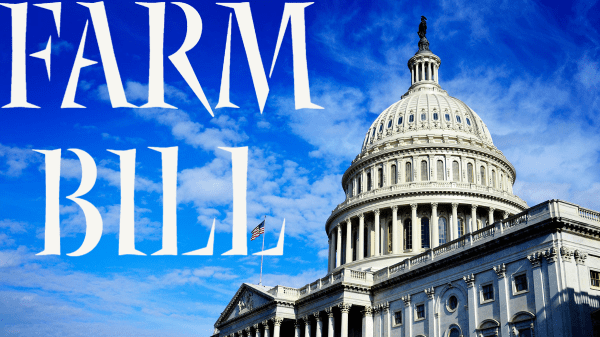Mushrooms, surprisingly, were a main theme of last week’s Senate farm bill hearing on specialty crops. And not just the kind you put in your beef stroganoff.
One industry panelist was Chris Alonzo, president of Pietro Industries, a third-generation mushroom farm in Kennett Square, PA, that was founded in 1938.
Alonzo’s presentation focused on the needs of his particular crop, such as for research on integrated pest management, the beneficial uses of mushroom compost, “which is not a fertilizer, but which sequesters carbon,” he noted. Other needs were for research into mechanization and for crop insurance (a main farm bill theme among specialty crop growers). Most other specialty crops have similar needs.

Sen. John Fetterman (D-PA) agreed with Alonzo that Pennsylvania is the nation’s mushroom capital (producing about two thirds of the U.S. supply) but threw an unusual question at him.
Fetterman asked about growing psychedelic mushrooms. “As you know,” he said, “I’m an advocate of psychedelics for treating PTSD [posttraumatic stress disorder] in veterans,” adding, “It could be an economic boom for mushroom producers.”
“We are absolutely into it,” Alonzo replied before changing the subject.
Another senator present at the hearing, Mike Braun (R-IN), emphasized his love of mushrooms as well, though, he added, not necessarily the kind Fetterman was talking about. Braun asked whether Alonzo’s operation had made any effort to cultivate high-value mushrooms such as chanterelles, morels, and truffles.
“We’ve attempted to cultivate every variety. The one we’ve succeeded with are the ones you see in the supermarket,” Alonzo replied.
Other panelists included Charles A. Wingard, vice president of field operations at Walter P. Rawl & Sons, Inc., Pelion, SC BB #:107452, speaking on behalf of the International Fresh Produce Association (IFPA) BB #:378962.
Wingard noted that while specialty crops account for 44 percent of farm income, they receive only 3.5 percent of crop expenditures. He called for greater spending on this sector, for example urging that spending on the specialty crop block grant program be increased to at least $100 million.
Wingard also echoed a common IFPA theme in calling for “ways to make fresh fruits and vegetables more available to SNAP recipients” and food programs for schoolchildren, saying that “a large portion of the U.S. population is overweight and exhibit poor dietary habits.” He added, “USDA says that we should make half of our plates fruits and vegetables. The farm bill is woefully short in that.”
Wingard also opposed “any attempt to change the definition of specialty crops.”
The panelists made a strong case for the value of specialty crops to the nation. And every industry naturally wants increased funding, but it would likely come at somebody else’s expense.
In a farm bill outlook from February 2023, Jonathan Coppess, of the department of agricultural and consumer economics at the University of Illinois, noted, “Increases in spending must be offset by reducing spending elsewhere or paired with revenue increases. The political effect of these provisions is to create a zero-sum scenario where increases in the policies for an interest or faction, or new policies or interests with policy ideas, would have to offset by decreasing policies for other interests or factions. For example, changes that increased the cost of farm programs would have to be offset by reductions in the cost of conservation, crop insurance, or food assistance.”
In farm bill funding, someone’s gain is going to be someone else’s loss.



